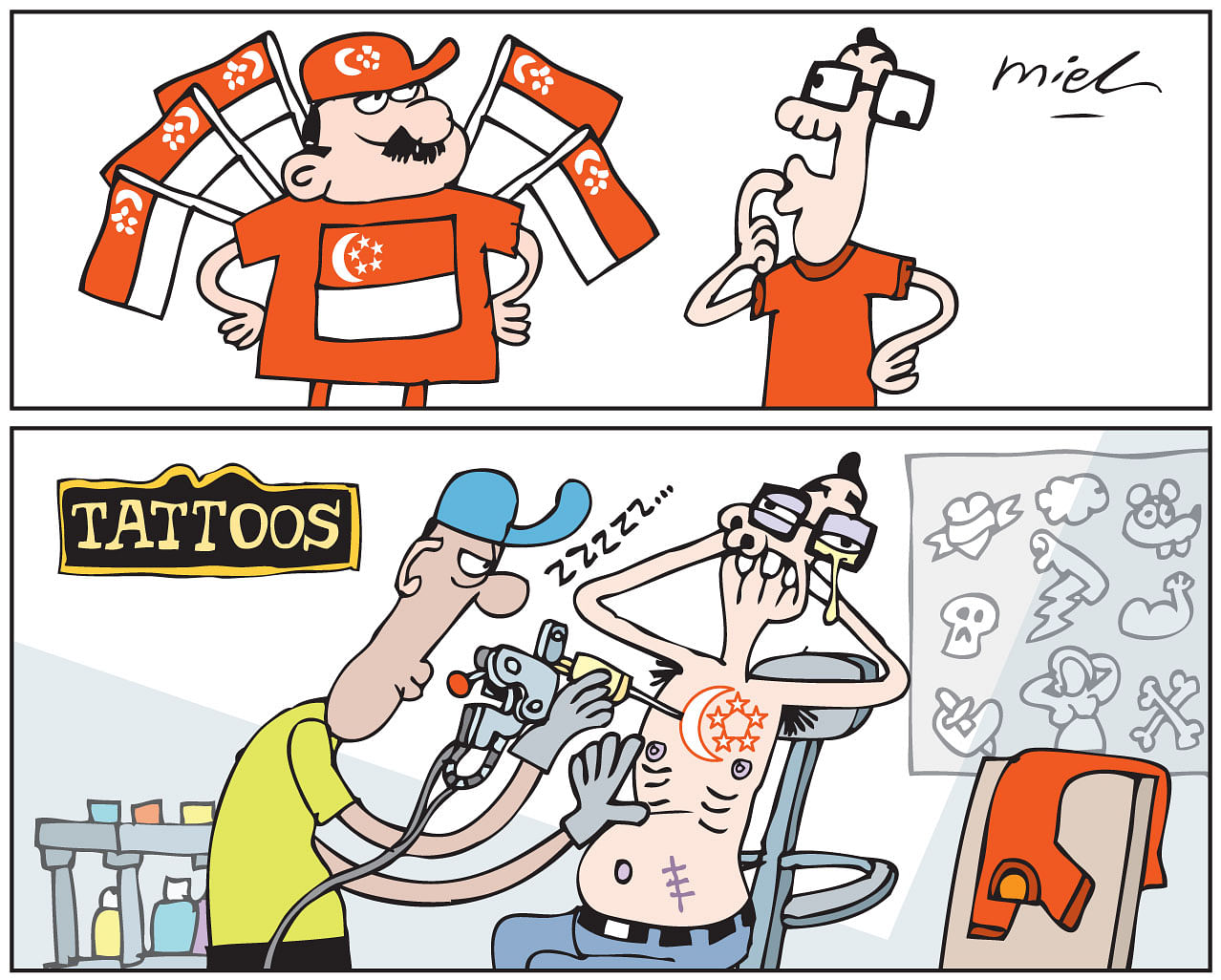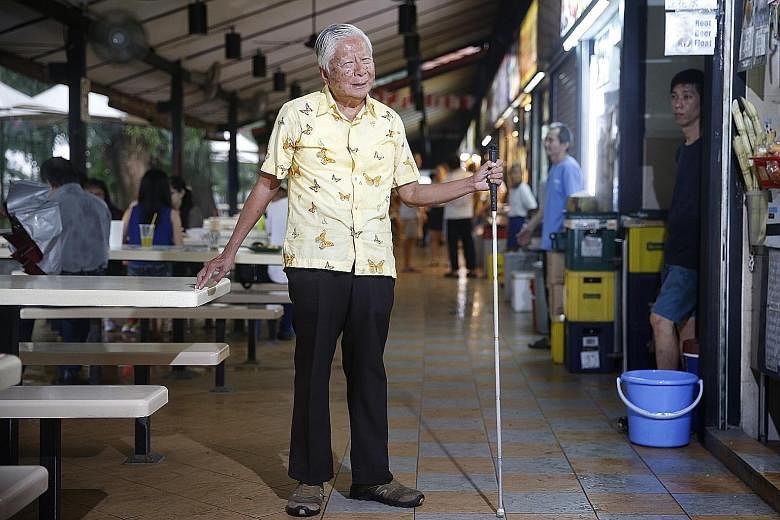Morning has broken on National Day. Two mechanical cranes stand like crooked sentries. Cars hum on finely paved roads. Tall buildings rise like pillars holding up the sky. As far as the eye can see, this is a nation changed. But Mr Tan Guan Heng, 78, well, he cannot see.
His cane tips and taps as he exits his condo just off Serangoon Road and walks beside the Kallang River. Ahead is a narrow bridge which is festooned with Singapore flags. He is blind yet he knows they are there. For when he walks on the bridge "the wind blows the flags across my face". Nations presumably touch us in different ways.
This may be One Nation but every citizen is a separate spectator to history, experiencing his own land and discovering how it changes in his own unique way.
In the early 1960s, when Mr Tan still had his sight, "very few houses had a phone". Now this is a nation captivated by gadgets and his introduction to the advance of technology is often amusing. Once, during his morning walk, a man strolling by said "Good morning" and Mr Tan, ever polite, replied "Good morning". Laughing, he adds, "I didn't realise he was talking to someone else" on a phone.
Unmarried and silver-haired, Mr Tan lost sight in his first eye at 23 due to a detached retina and then his second at 29 for the same reason. In 1965, he saw Mr Lee Kuan Yew crying on television but, by 1966, he was blind. He saw his nation formed but had to feel it grow and sense it develop. His feet that once walked on muddy tracks and in long grass now tell him of "pavements with no potholes".
-
WATCH IT ONLINE
-
Mr Tan Guan Heng remembers the sounds and smells of a young Singapore http://str.sg/Znsx
He was the first blind president of the then Singapore Association for the Blind. He founded a library which now has "hundreds of titles", including braille and audio books. He introduced a low-vision clinic to help those who can barely see maximise their residual vision.
On this National Day, we celebrate the truth that this nation is built, act by act, by a vast congregation of folk.

Change is often a visual exercise - a new mall, for instance, is first examined by the eye. But the windows to Mr Tan's soul are his ears and his nose. This new Singapore, he'll tell you, is a noisy one, with its pile drivers and road diggers and hawker centres where citizens are squashed together. "People talk so loud," he says with a smile.
You see change, he listens to it. As a young man living in Newton, he could place people through their dialect - Teochew, Hakka, Hokkien - but now amid the babble, he mainly hears Mandarin.
National Day is a public day and yet a private one, a day of revelry yet also of remembrance. And so he recollects the street symphony of a time gone by, as if recalling a precious piece of music. He speaks of the "mee goreng fellow banging his ladle" and the "itinerant hawkers" calling out "chee yoke, kai yoke". He talks of the "trring" of the ice-cream man's bell and the bread man's cry of "roti, roti, roti". He pauses. "It was nostalgic and quite romantic", but of course it was, this was the soundtrack of another life.
He could once see so he can visualise shapes and in his mind he knows what a Mercedes looks like or even a building of 14 to15 floors. Yet Singapore's progress can defeat the imagination and buildings of 40 to 50 floors he "cannot envisage" and the massive hotels he has heard of he "cannot visualise".
Change is also revealed through his nostrils. The fumes of old buses no longer linger and the river he walks along does not stink as it once did at high tide. In such small ways a nation advances. Ah, but when it comes to food he "longs for the original smells. Char kway teow, the way they cook, the way they fry. Now it's all sanitised". He sighs.
He did not attend the parade for it is too crowded for an old gent with a stick, but is pleased that the public perception towards the blind is gently altering. "People are more forthcoming. If you're standing alone, they might ask, 'where do you want to go?' "
As a nation looks back and yet forward, he wishes for more opportunities for the blind and for a "caring society where the disadvantaged and disabled are not left behind". He wishes, too, for a young generation to strive as hard as his did. "We had to pull up ourselves as a nation," he says with quiet pride. But it was not just politicians, he insists, who were responsible for this construction. "Not least of all it was your hard-working Singaporean. Let's not forget the man in the street."
The morning walk is done and he finds his way back home. Like his nation, he has voyaged well. He sold textbooks, has written four books and last week recited for me lines from a poem by William Wordsworth. And now as I leave, those words hang in the humid air:
Bliss was it in that dawn to be alive, But to be young was very heaven!

